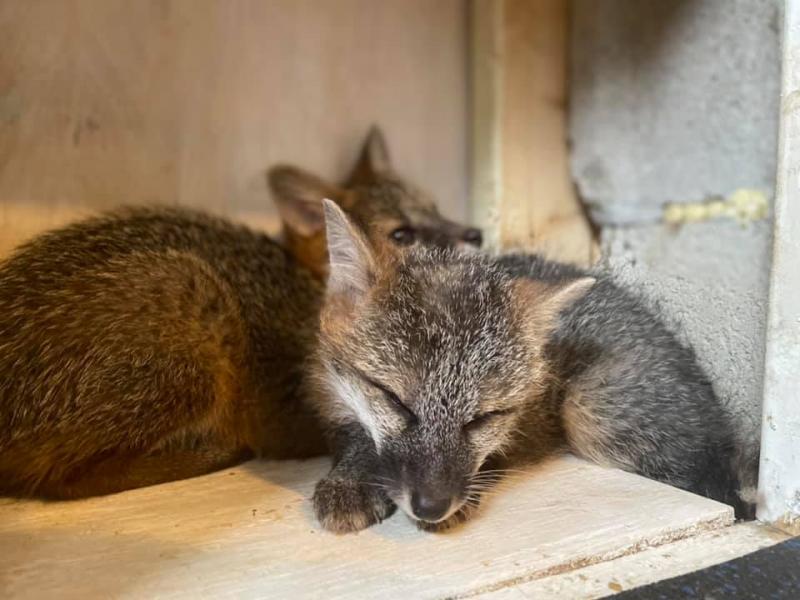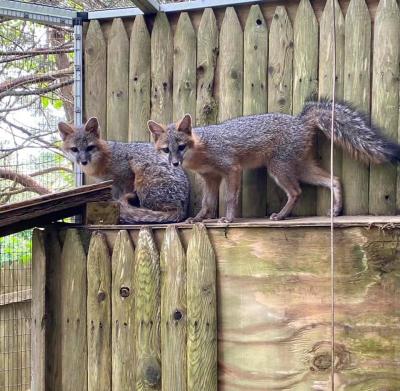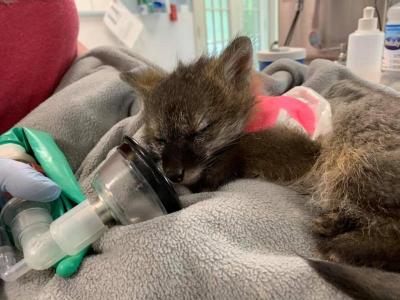With a little help from his friend, orphan fox recovers
Earlier this spring, an orphaned grey fox kit was fighting for his life after getting caught in a Dartmouth soccer net.
Now, thanks to some help from the New England Wildlife Center’s Cape Cod branch, the young canid is fully recovered and ready to take on life with a new friend.
“It was a long road for them,” said Zak Mertz, The Cape center’s executive director. “They did not disappoint.”
In May, the Dartmouth fox found himself stuck in the net after he likely tried to chase down some prey. According to Mertz, small rodents will sometimes gather at the base of these nets for cover.
Luckily for the grey kit, an animal control officer was able to untangle him and take the fox to the wildlife center so vets could assess his injuries, including deep lacerations around his neck and shoulders.
“After an initial surgery to debride and close the wounds, we managed the site with daily honey bandage changes, antibiotics and pain medications,” a Facebook post from the wildlife center read.
During his recovery, the fox befriended a fellow orphaned grey kit that was rescued from Norfolk the same day he was brought in from Dartmouth.
The two were initially separated during their initial recoveries, but after getting their first shots and some time to quarantine, the orphans were finally able to meet.
“They were a bit standoffish at first, but before long they were fast friends,” the post read.
To get them adjusted, Mertz said the two were placed in the same room, but in separate carriers, to get used to each other’s scents and figure out their social dynamic.
As the center’s only two grey foxes, Mertz said the two “got along quick.”
“They were definitely bonded to each other,” he said. “Toward the end, they would do the behavior where they would sit back to back to look for danger — they would clearly give each other social cues.”
The two spent the next couple of months growing and learning how to hone their survival skills in order to get acclimated to an eventual return to the wild.
The center started them off with daily food-based enrichment activities such as clearing obstacles and searching for live mice staff hid in small enclosures.
“We try to imitate as much of the wild and instinct training they get from their parents as much as possible,” Mertz said.
Eventually, they moved to larger, outdoor enclosures with trees and logs to climb and face their final test: evasion.
Dr. Priya Patel, the center’s wildlife medical director, noted that if staff were able to catch them with a towel or net, they’d still need some time at the facility.
“They were very difficult to catch,” she said with a laugh, so she knew the time had arrived.
After a final veterinary check and a last round of vaccines, the two were picked up by Norfolk Animal Control and re-introduced to the wild together to get familiar with the land ahead of winter.
Mertz hopes that being together will help them both as they adjust to their new wild life.
“I don’t think it would have gone well if we split them up,” he said. “They were inseparable.”














